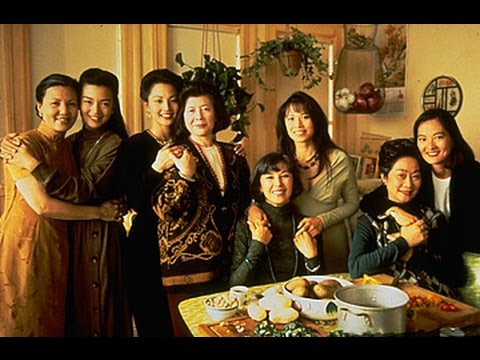
Tuesday
Having explored Joe Biden’s love for Seamus Heaney and James Joyce, I now turn my attention to vice president-elect Kamala Harris’s favorite books. When queried by bookriot.com, she listed
Richard Wright, Native Son
Khaled Hosseini, The Kite Runner
Toni Morrison, Song of Solomon
Amy Tan, The Joy Luck Club
C. S. Lewis, The Lion, the Witch, and the Wardrobe
Native Son is also Clarence Thomas’s favorite novel (see my essay on that here), which provides insight into the deep anger that lies behind many of his Supreme Court opinions. Bigger Thomas is an angry black man who, from the first, made relatively moderate African Americans like James Baldwin nervous. After all, isn’t Wright just confirming white stereotypes about savage black men?
Clarence Thomas has directed his own anger against liberals, whose affirmative action programs he believes have emasculated them. (That he himself clearly benefited from such programs is one reason he’s angry.) The justice’s views may explain why Trump saw his numbers rise amongst black men (albeit slightly), despite his racism. Perhaps his toxic masculinity drew kindred souls in various minority communities.
But why would a black woman be drawn to Native Son? Perhaps Wright helps Harris better understand her Jamaican father. Maybe it gets at her own anger at American racism, even though she has channeled that anger very differently than Clarence Thomas. While Harris, like Obama, has had to hide much of her anger, it surfaced when she went after Biden for his tolerance of racists and racist measures in an early debate.
Harris’s appreciation of The Kite Runner is easier to understand. Although her mother is from Hindu India rather than Muslim Afghanistan, religious caste systems operate in both countries, and the novel can be applied to America’s own racial caste system. The father in Kite Runner is an open-minded man who tries to teach his son Amir tolerance, treating their lower-class servant and his son as equals. Caste pressure causes Amir to betray his playmate Hassan at a critical moment, however.
As a child who was bused to desegregate mostly white Oakland schools, Harris had a front row view of racism and perhaps suffered from comparable betrayals. At the same time, her parents would have been like Amir’s father, embracing the vision that people can reach across centuries-old barriers.
In other words, the novel may be among Harris’s favorites because it allowed her to sort through some of America’s most vexed issues. She may also have liked how the book concludes with a determination to right past wrongs. A grown-up Amir, now living in America, cannot undo what he did to Hassan, but he can save Hasan’s son from a miserable existence.
I have written several times (for instance, here) about why Toni Morrison’s Song of Solomon is Barack Obama’s favorite novel, speaking to the way that the mixed-race “Barry” claimed and found purpose in his black identity. Might the mixed-race Kamala have gone through as similar identity quest? Is that why she attended Howard University and joined Alpha Kappa Alpha?
Incidentally, Morrison being a Howard graduate herself may enter into Harris’s choice. I find it interesting, however, that Harris names Song of Solomon rather than, say, Bluest Eye, Sula, or Tar Baby, all of which feature female protagonists. Sula especially involves two female identities, “good girl” Nel and “bad girl” Sula, that could have spoken to assertive Kamala. But Song of Solomon is the novel most concerned with roots.
If Song of Solomon helps Harris grapple with her father’s legacy, Joy Luck Club addresses her mother’s. A classic immigrant novel in which each generation has difficulty understanding the one that came before or after, Joy Luck may have helped illuminate Harris’s battles with her own immigrant mother. After all, Harris would fully identity as American while her mother would be balancing her old world and new world identities. All the mother-daughter conflicts in Joy Luck Club boil down to their life trajectories.
For those born in America to trace their mothers’ stories is to understand the origins of these conflicts. I imagine Harris coming to appreciate her mother more after reading Tan’s novel. Perhaps she even quizzed her mother about her own Indian grandmother. In any event, one can see why she would have found the novel memorable.
And what about The Lion, the Witch, and the Wardrobe, which Harris presumably read as a child? Perhaps she identified with Lucy, who has a vision of a new world when no one else will believe her. Lucy sticks to her guns, despite male bullying, and fearlessly embarks on an adventure to save her new friend Mr. Tumnus.
Perhaps when Harris read the novel, she regarded her mother as a bit of a cold witch (and then came to appreciate her more after reading Joy Luck Club). This, however, is just speculation.
Given the problems faced by assertive women, I imagine Harris’s relationship to the white witch would have been ambivalent. C. S. Lewis created a number of emasculating enchantresses (there’s also Jadis in Magician’s Nephew and the Lady of the Green Kirtle in Silver Chair), and Trump’s own male insecurities have led him to regard Harris (and Hillary Clinton as well) as “a monster” and “nasty.” Perhaps Harris first got a glimpse of female power in the White Witch and later learned to claim it as positive in Joy Luck Club.
In any event, it’s a great relief to have a president and vice president who are thoughtful readers. If America’s soul is to be restored, it needs soulful leaders.

